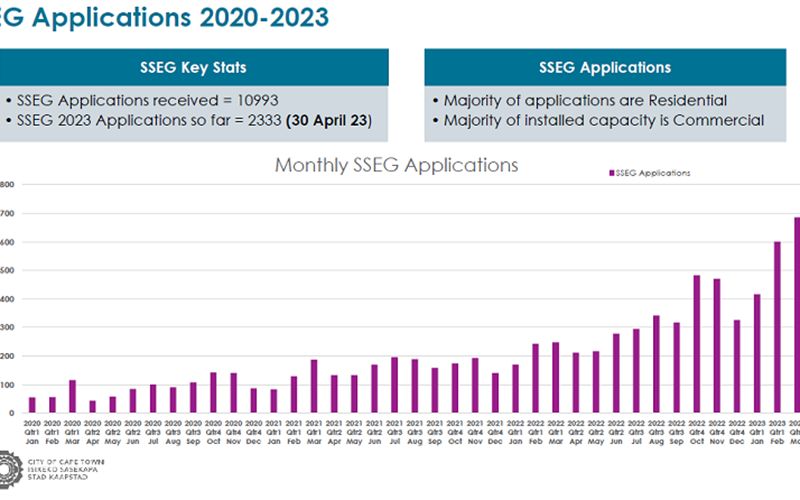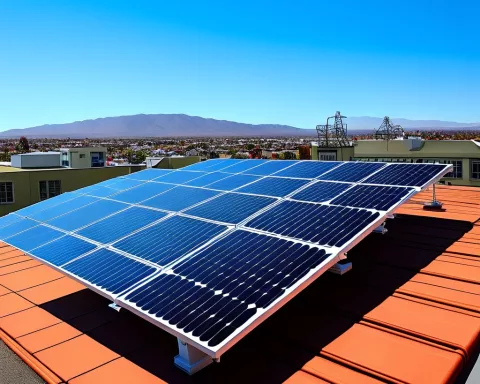Cape Town is witnessing a significant increase in rooftop solar photovoltaic (PV) applications, driven by incentive programs aimed at reducing load-shedding. Mayor Geordin Hill-Lewis has confirmed that March 2023 saw the highest number of new solar PV installation applications to date.
Cape Town’s incentive programs prove effective
The numbers speak for themselves: in the first four months of 2023, the city received 2,333 solar PV installation applications, with nearly 700 in March alone. This marks a notable 21% of all solar PV applications on record. The data suggests that the market is positively responding to Cape Town’s incentives for solar energy generation.
Residential applications lead the way
Although most of the installed solar PV capacity in Cape Town is commercial, it is residential applications that are driving the record-breaking interest levels. The city has recently expanded its policy to support safe and legal solar installations, making solar energy even more attractive for residents. As part of this effort, the city will increase the residential small-scale embedded generation tariff by 10.15% in the 2023/24 financial year, along with a 25c per kWh incentive. Additionally, the monthly AMI meter Administration fee will also be significantly reduced.
Cash incentives for excess rooftop solar power
Cape Town is the first city in South Africa to offer cash incentives to households and businesses for their excess rooftop solar power. Businesses will start receiving cash for power in June, while residents can expect to have this opportunity later in the year.
Power Heroes campaign offers further incentives
Cape Town’s upcoming Power Heroes campaign will offer additional incentives for households. Residents will have the chance to sign up for remote demand management during peak times, controlling power-hungry appliances like geysers and pool pumps. If just 25,000 of Cape Town’s over 600,000 electricity customers become Power Heroes, the city could protect against an additional full stage of load-shedding during peak hours. The program is voluntary and free for participants.
Three-phase procurement plan to end load-shedding
Cape Town is committed to ending load-shedding and has launched a three-phase procurement plan to achieve this goal within three years. The city will award contracts for 200MW of renewable energy this year and has 500MW of dispatchable energy currently out for tender. These initiatives complement key municipal generation projects like the Steenbras Hydro Pumped Storage Scheme, which seeks to save up to two stages wherever possible. Additionally, a forthcoming R1.2 billion solar plant and battery project on a portion of Paardevlei in Somerset West is expected to provide a full stage of load-shedding protection during the day.
Cape Town’s record-breaking solar PV application levels, coupled with the city’s innovative incentive programs, demonstrate a bright future for renewable energy in the region. As residents continue to embrace solar installations, the city is taking concrete steps towards a sustainable energy future and putting an end to load-shedding.












